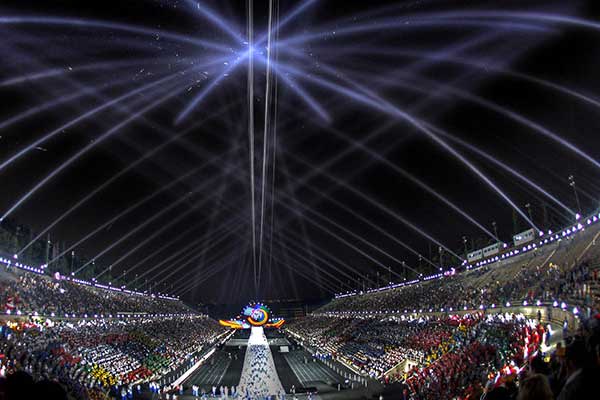The Special Olympics World Winter Games, planned for Sweden in February 2021, will no longer take place in the European nation. The reason is that the event’s organizing committee has not been able to secure sufficient funds for the Games.
The decision is a major setback to thousands of athletes, parents and coaches who had been training and preparing for this once-in-a-lifetime experience to compete at a large-scale global sports event. More than 2,000 athletes from 105 countries are registered to participate in the Games at Åre and Östersund in Sweden, competing in seven winter sports competitions over one week.
“At a time when the world is flooded with messages of division, many are looking for a north star to guide the way to inclusion,” said Tim Shriver, chairman of Special Olympics. “The World Winter Games in Sweden would have been a powerful platform for millions of people to rally around—in Scandinavia, Europe, and the world. Instead, we are faced with a disappointment all too familiar to our athletes and people with intellectual disabilities everywhere.”
Special Olympics will immediately begin to explore a substitute location to host the World Winter Games in 2021. This is the first time a Special Olympics World Games will need to find a new home so close to the scheduled event.
“The message to the more than five million Special Olympics athletes with intellectual disabilities around the world is clear: inclusion is not a priority,” said Nyasha Derera, Chair of the Global Athlete Congress, which represents Special Olympics athletes worldwide. “But my fellow athletes are used to setbacks. We face adversity nearly every day of our lives, and we are made stronger by it.”
On Thursday, the Board of the Swedish Parasport Federation voted not to support the World Winter Games in Sweden. The decision came after a recent political promise to fund the World Winter Games failed to materialize. This directly led to Thursday’s vote to pull financial backing from the Games.
Event organisers had requested that the Swedish government pledge $6 million toward the approximately $14 million necessary to fund Special Olympics global winter showcase. The Swedish organizers of the World Winter Games planned to use the event as a catalyst to improve support for citizens with intellectual disabilities with a series of health activities tied to Swedish government funding.
“We have made great strides in fundraising among the private sector (since being awarded the Games in December 2018), proving there is a groundswell of support for inclusion for people with intellectual disabilities,” said Johan Strid, Secretary General of the Swedish Parasport Federation and the Swedish Paralympic Committee. “However, we also required financial support from the government. Since the government is not willing to support us, the people of Sweden will now miss the incredible opportunity to stake our claim as a pioneer of true social inclusion.”
It is estimated that 100,000 Swedish residents have an intellectual disability. People with intellectual disabilities often experience poorer quality and diminished access to health services. For example, 52 percent of people with intellectual disabilities in Sweden are obese. One of the key legacy objectives of the Games was a long-term public health initiative designed to reach and engage more people with intellectual disabilities across Sweden.
“We are an organization that faces adversity every day and have proven we can rise above even the toughest of challenges,” said Mary Davis, CEO of Special Olympics. “Our athletes are resilient, spirited and have great character. This decision by the Swedish government is yet another hurdle to overcome.”
—
Photo Credit: Special Olympics
